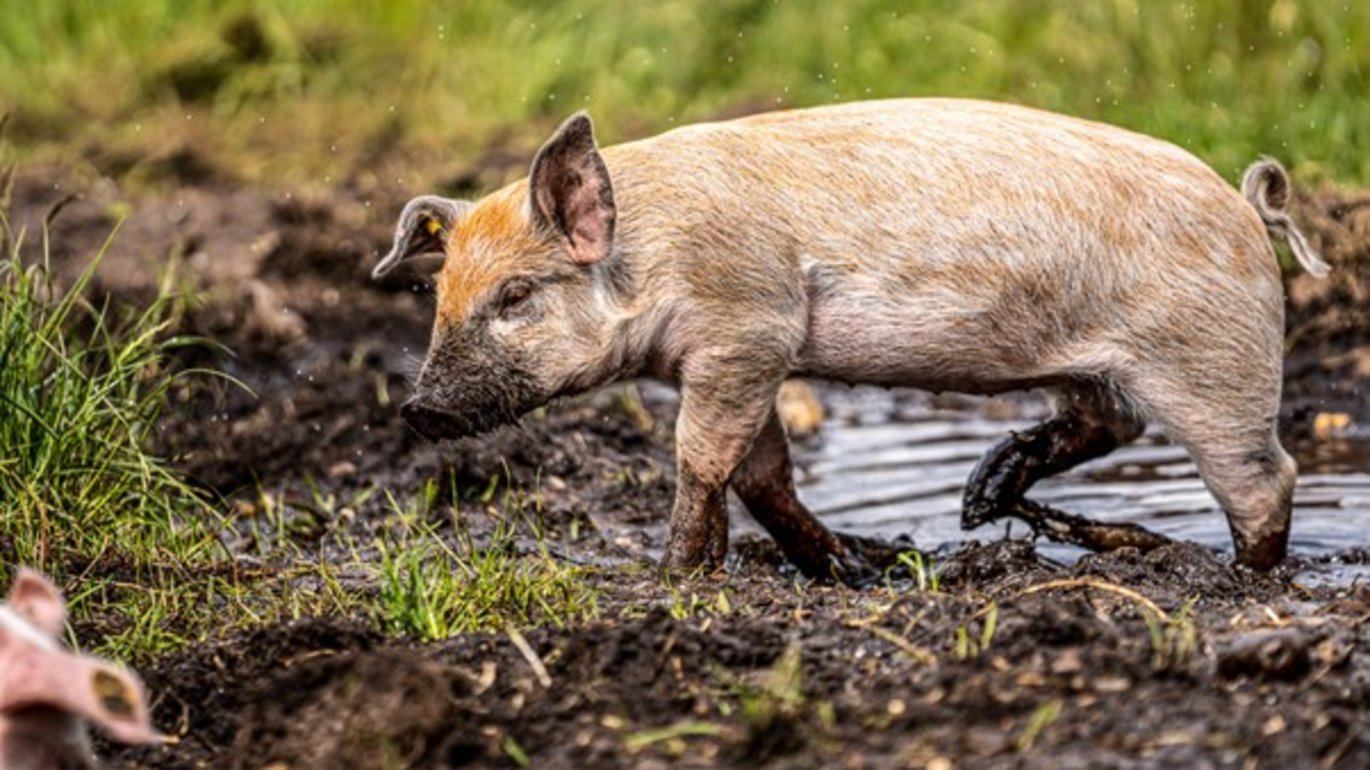Breeding for happier pigs in the barn
What is welfare for pigs - and how do we improve the welfare? To determine what makes pigs happy, a new project will investigate which kind of activities pigs engage in when they have a free choice.

One of the strengths of organic farming is improved animal welfare, especially for pigs. But what exactly is welfare for pigs, and how do we enhance it?
The goal of animal welfare has been the absence of suffering for many years (»Did you get hit in the head today? No? Fantastic! «). To improve welfare, one can remove negative experiences. However, the presence of positive experiences is equally important for the overall well-being of the animal (»Did you get a hug today? Yes? Fantastic! «).
Research in animal welfare is increasingly based on a model where the sum of the animal's negative and positive experiences reflects its overall welfare. Four aspects of the animal's life - nutrition, environment, health, and the opportunity to exhibit behavior - are of crucial importance for the animal's mental state (Bracke and Hopster, 2006; Browning, 2022).
The team behind a new research project, WelBredPOrg, aims to investigate whether we can improve pig welfare by ensuring that pigs spend more time engaging in behaviors that contribute to positive states. Before this can be achieved, a vital question must be answered: What constitutes a positive experience for a pig?
To determine what makes pigs happy, the project will examine what activities pigs engage in when they have free choice and are offered resourceful conditions.
Pigs are descendants of wild boars, adapted to life in forested areas in small social groups of closely related individuals. Their well-developed snouts help them navigate the forest in search of the next tasty snack. This type of behavior is called »foraging" (rooting behavior is a part of foraging behavior), which means "searching for food followed by eating it." Research has shown that a foraging pig is a happy pig (Douglas et al., 2012).
Pigs like to spend many hours a day searching for food, even when they have access to unlimited feed (Pedersen et al., 2005; Jensen et al., 2007; Stabler et al., 2022).
The focus on this type of behavior is the foundation of the WelBredPOrg project, which aims to investigate how the welfare of organic pigs can be improved by allowing them to express their natural foraging behavior.
In the coming years, WelBredPOrg will examine whether the organic pigs that spend the most time foraging are also the happiest pigs in the barn.
Using ear chips (RFI- ear tags), researchers can measure how much time each pig spends in the specific test area where they can forage for high-quality forage.
To determine if pigs with foraging behavior have better welfare, researchers will examine how this behavior is related to expressions of both positive mental states, such as playful behavior, and aspects of welfare associated with negative mental states, such as poor body condition, injuries, and aggression.
Last but not least, the project will investigate whether there is a genetic component associated with exhibiting a high level of foraging behavior.
If that is the case, it is possible to selectively breed pigs that are more motivated to exhibit foraging behavior, thereby allowing them to have more positive experiences in their lives. This, combined with providing plenty of high-quality forage for the pigs to engage with, ensures high welfare for organic pigs.
This concept not only benefits welfare but, if it turns out that there are many pigs highly motivated to root around and consume forage, a larger portion of their food can be sourced directly from the field, benefiting the climate and the environment.
Visit the website of WelBredPOrg here
The WelBredPOrg project is part of the Organic RDD 8 Programme, coordinated by ICROFS (International Centre for Research in Organic Farming and Food Systems). It has received funding from the Green Development and Demonstration Program (GUDP) under the Ministry of Environment and Food.